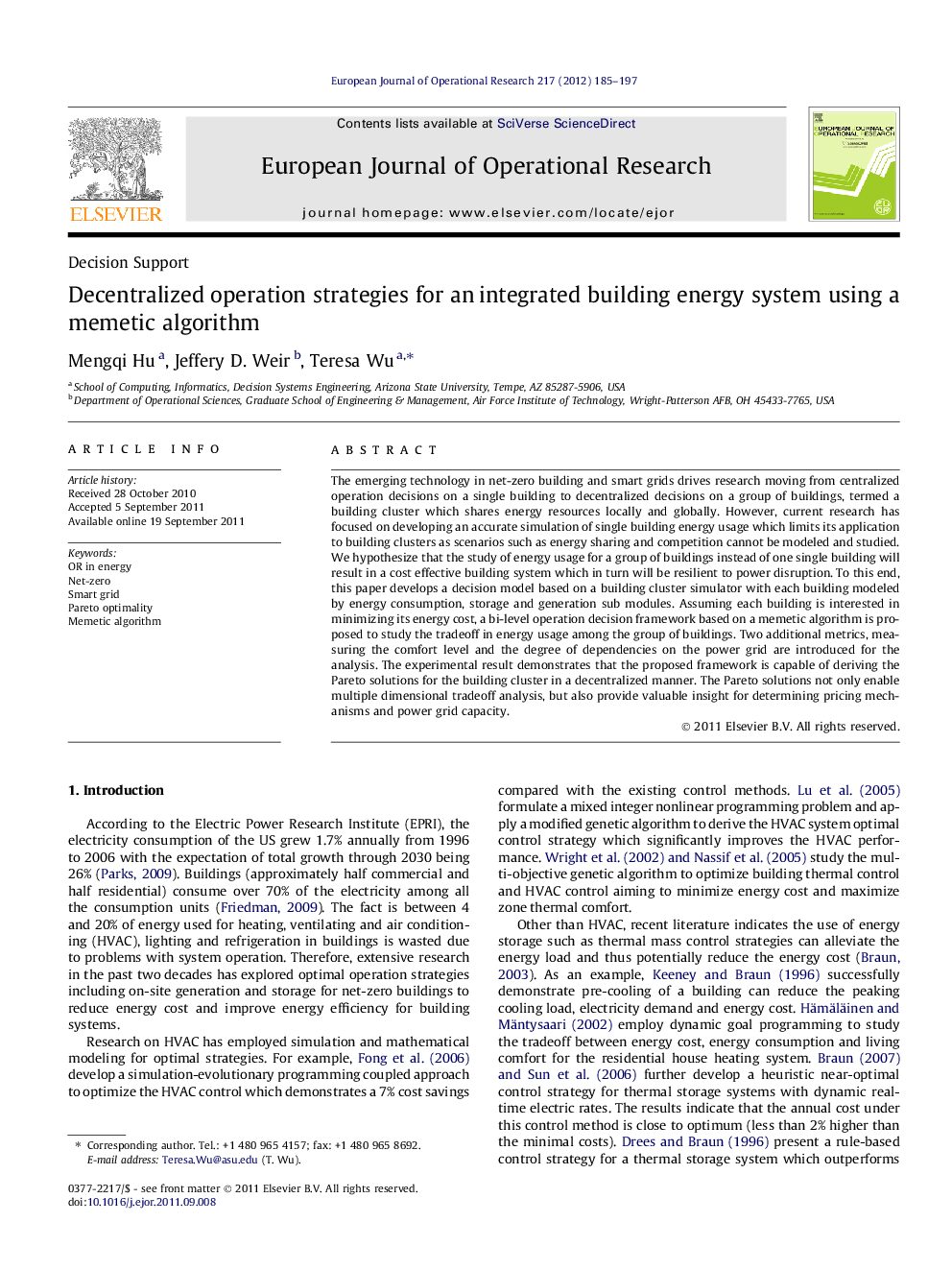| Article ID | Journal | Published Year | Pages | File Type |
|---|---|---|---|---|
| 478459 | European Journal of Operational Research | 2012 | 13 Pages |
The emerging technology in net-zero building and smart grids drives research moving from centralized operation decisions on a single building to decentralized decisions on a group of buildings, termed a building cluster which shares energy resources locally and globally. However, current research has focused on developing an accurate simulation of single building energy usage which limits its application to building clusters as scenarios such as energy sharing and competition cannot be modeled and studied. We hypothesize that the study of energy usage for a group of buildings instead of one single building will result in a cost effective building system which in turn will be resilient to power disruption. To this end, this paper develops a decision model based on a building cluster simulator with each building modeled by energy consumption, storage and generation sub modules. Assuming each building is interested in minimizing its energy cost, a bi-level operation decision framework based on a memetic algorithm is proposed to study the tradeoff in energy usage among the group of buildings. Two additional metrics, measuring the comfort level and the degree of dependencies on the power grid are introduced for the analysis. The experimental result demonstrates that the proposed framework is capable of deriving the Pareto solutions for the building cluster in a decentralized manner. The Pareto solutions not only enable multiple dimensional tradeoff analysis, but also provide valuable insight for determining pricing mechanisms and power grid capacity.
► A distributed decision model for building clusters is developed. ► A bi-level operation decision framework based on a memetic algorithm is proposed. ► The proposed framework is able to derive Pareto solutions for building cluster. ► We are able to conduct Pareto-based tradeoff analysis valuable to building system.
